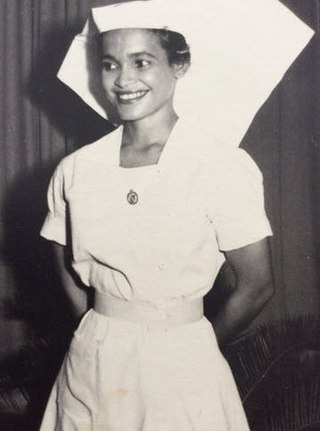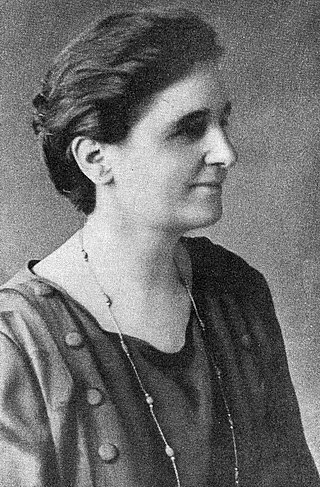Related Research Articles

The University of South Australia (UniSA) is a public research university in the Australian state of South Australia. It is a founding member of the Australian Technology Network of universities, and is the largest university in South Australia with approximately 37,000 students.

Lowitja O'Donoghue, also known as Lois O'Donoghue and Lois Smart, was an Australian public administrator and Indigenous rights advocate. She was the inaugural chairperson of the Aboriginal and Torres Strait Islander Commission (ATSIC) from 1990 to 1996. She is known for her work in improving the health and welfare of Indigenous Australians, and also for the part she played in the drafting of the Native Title Act 1993, which established native title in Australia.

Larissa Yasmin Behrendt is an Australian legal academic, writer, filmmaker and Indigenous rights advocate. As of 2022 she is a professor of law and director of research and academic programs at the Jumbunna Institute for Indigenous Education and Research at the University of Technology Sydney, and holds the inaugural Chair in Indigenous Research at UTS.
The Council of Australian Postgraduate Associations (CAPA) is the peak representative body for postgraduate students in Australia. CAPA's members are 33 postgraduate associations and the National Aboriginal & Torres Strait Islander Postgraduate Association (NATSIPA). CAPA provides member associations with representation to the Federal government, and peak bodies such as the Australian Research Council and Universities Australia, on issues affecting postgraduate students in Australia. In 2017, Australia had over 400,000 postgraduate students, representing one quarter of all tertiary students in Australia.

Marcia Lynne Langton is an Aboriginal Australian writer and academic. As of 2022 she is the Redmond Barry Distinguished Professor at the Melbourne School of Population and Global Health, University of Melbourne. Langton is known for her activism in the Indigenous rights arena.
William Edward Hanley Stanner CMG, often cited as W.E.H. Stanner, was an Australian anthropologist who worked extensively with Indigenous Australians. Stanner had a varied career that also included journalism in the 1930s, military service in World War II, and political advice on colonial policy in Africa and the South Pacific in the post-war period.
John Woolley was an academic and clergyman, the first principal of the University of Sydney, Australia.
Lou Bennett is an Indigenous Australian musician, actress and academic researching Aboriginal languages and their retrieval.

Bronwyn Bancroft is an Aboriginal Australian artist, administrator, book illustrator, and among the first three Australian fashion designers to show their work in Paris. She was born in Tenterfield, New South Wales, and trained in Canberra and Sydney.
Sandra Eades is a Noongar physician, researcher and professor, and the first Aboriginal medical practitioner to be awarded a Doctorate of Philosophy in 2003. As of March 2020 she is Dean of Medicine at Curtin University.

Patricia Margaret Selkirk, is an Australian plant biologist and ecologist. Her career has focused on Antarctic and subantarctic terrestrial ecosystems and she is recognized as being a pioneering female Australian Antarctic scientist.
Aileen Moreton-Robinson is an Australian academic, Indigenous feminist, author and activist for Indigenous rights. She is a Goenpul woman of the Quandamooka people from Minjerribah in Queensland. She completed a PhD at Griffith University in 1998, her thesis titled Talkin' up to the white woman: Indigenous women and feminism in Australia. The thesis was published as a book in 1999 and short-listed for the New South Wales Premier's Literary Awards and the Stanner Award. A 20th Anniversary Edition was released in 2020 by University of Queensland Press. Her 2015 monograph The White Possessive: Property, Power, and Indigenous Sovereignty was awarded the Native American and Indigenous Studies Association's (NAISA) prize in 2016.
Dr. Sally Michelle Stewart-Wade is an Australian plant pathologist currently working as a Casual Professional at the Royal Melbourne Institute of Technology (RMIT) in Sydney, Australia. Wade was born in 1969 in Sydney and completed her education at RMIT where she received a Bachelor of Applied Science in Applied Biology. She went on to complete her PhD at RMIT studying the "biological control of the weed thornapple." She has studied many aspects of weed control, as well as, fungal diseases on plants. Stewart-Wade has also reviewed the scientific literature twice for the nursery and garden industry on plant pathogens in recycled irrigation water, and the efficacy of organic soil amendments such as compost.

MaryAnn Bin-Sallik is a Djaru Elder and Australian academic, specialising in Indigenous studies and culture. She was the first Indigenous Australian to gain a doctorate from Harvard University.

Margaret Hilda Harper was an Australian pediatrician, medical writer, and radio commentator. Harper was one of the two physicians who described that coeliac disease in the pancreas and cystic fibrosis were "distinct entities" in the 1930s.
Lynette Wendy Russell, is an Australian historian, known for her work on the history of Indigenous Australians; in particular, anthropological history ; archaeology; gender and race, Indigenous oral history, and museum studies.
Olga Margaret Garson, better known as Margaret Garson, was an Australian physician and cytogenetics researcher.
Margaret Valadian was an Aboriginal Australian educator and advocate for Indigenous rights, through improved access to education.
Margaret Beth Gott was an Australian plant physiologist, ethnobotanist and academic who specialised in the use of indigenous plants in south-east Australia.
References
- ↑ "Dr Margaret Williams Weir: Because of her we can". Ascension. 18 September 2018. Retrieved 20 May 2021.
- ↑ "Aboriginal Girl Matriculates". The Canberra Times. 11 January 1957. Retrieved 31 August 2018.
- 1 2 Trounson, Andrew (23 September 2015). "First Aboriginal graduate, Margaret Williams-Weir, honoured by Melbourne". The Australian. Retrieved 31 August 2018.
- 1 2 Scouller, Rosemary (9 March 1961). "What is the future for the Australian Aboriginal?". Tharunka. Retrieved 31 August 2018.
- 1 2 "Media release: The University of Melbourne honours Australia's first Aboriginal university graduate". University of Melbourne. 23 September 2015. Retrieved 31 August 2018.
- 1 2 Weir, Margaret (2014). "Dr Margaret Weir" (PDF). University of Western Sydney. Retrieved 1 June 2021.
- 1 2 3 4 Cleverley, John; Mooney, Janet (2010). Taking Our Place: Aboriginal Education and the Story of the Koori Centre at the University of Sydney. Sydney: Sydney University Press. pp. 27–28. ISBN 9781920899387.
- ↑ Henningham, Nikki. "Margaret Williams Weir". The Encyclopedia of Women & Leadership in Twentieth-Century Australia. Retrieved 31 August 2018.
- ↑ Percival Wood, Sally (12 December 2017). "Q&A with Dr Sally Percival Wood". Australian Policy and History. Retrieved 31 August 2018.
- ↑ Weir, Margaret (2001). "Indigenous Australians and Universities: A Study of Postgraduate Students' Experiences in Learning Research". University of New England Repository. Retrieved 31 August 2018.